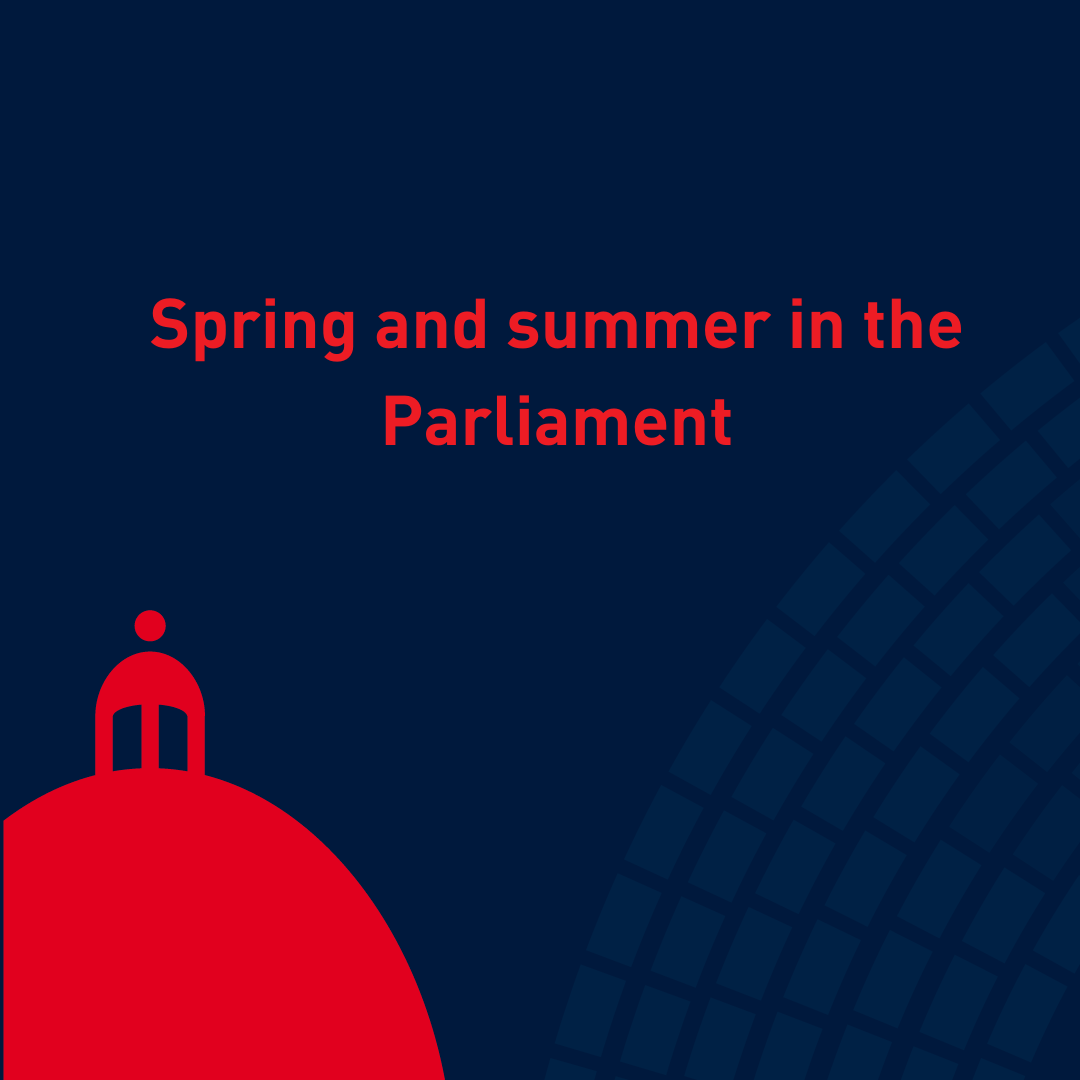
Author: Mirjana Nikolić, Journalist
In an eventful and tumultuous political season, Serbia's Parliament faced a series of controversies and shortcomings, exposing the strains within the ruling majority's control over proceedings. The spring session commenced with a significant 50-day delay, prompting the Government's dismissal of any criticism by labeling it as mere nitpicking, asserting the constitutional flexibility of the mandated March start date. However, as May drew to a close, an abrupt urgency emerged to conclude the session in line with the Constitution, despite ongoing debates concerning the accountability for mass murders that had rocked the nation since May. (To remind, the spring regular session by the Constitution should take place over the course of 90 days, between March 1 and May 31)
The regular session, spanning 90 days, was notably unproductive, with just 12 plenary working days. Amid the lackluster regular session, parliamentary activities mainly revolved around institutional appointments, including the appointment of a new Ombudsperson, international agreements, loans, and a handful of legislative amendments.
A notable exception occurred in response to public outcry following heinous mass shootings, prompting a sitting in May that extended into the extraordinary session whose agenda was, for the first time, shaped by opposition parliamentary groups - by including a motion of no confidence proposal against the Minister of Interior, Bratislav Gašić, and a proposal for establishing Parliamentary Inquiry Committee that would look into systemic failures that preceded and followed tragic crimes.
Observations of this session reveal a familiar yet disconcerting pattern: the ruling majority's adeptness at bending and inventing rules to its advantage. The Speaker, Vladimir Orlić, audaciously attributed quorum attainment to the majority's benevolence. The session also brought to light an invented requirement that all 61 MPs who signed a proposal for ministerial replacement must be present for the corresponding debate, a notion debunked as baseless.
The Prime Minister's involvement brought denunciations of parliamentary inefficiency during the course of the extraordinary session, which exceeded the workflow of regular sessions for 17 days - in her opinion, being a "waste of time" - further strained the proceedings. Notably absent was empathy for the crime victims that prompted the session. The status quo persisted, with no acceptance of culpability, and the assertion that the crimes stemmed from inherent "monstrosity" rather than systemic failures.
In this atmosphere, one individual, Aleksandar Martinović, the Minister of Public Administration and Local Self-Government, stood out for all the wrong reasons. Despite brief participation, his derogatory remarks, belittling those without children, which were welcomed with the applause of all present ruling majority MPs, drew outrage and disrupted proceedings, ultimately leading to his exclusion from subsequent discussions.
Of substantial concern was the redaction of session transcripts and delayed release to journalists, an alarming departure from transparency norms. This alteration opened the door for information manipulation within official parliamentary records, undermining the accuracy and integrity of reported events. These changes obscured critical details, such as Minister Gašić's remarks implicating the German Embassy in sheltering murderers. Or Prime Minister’s comment that “the baby would have died anyway” reflecting the event from 2015 when the rescue military helicopter tragically crashed due to reckless decisions of top Government officials, including then Minister of Defence, Bratislav Gašić.
These occurrences, including targeted attacks on protestors, academics, and opposition figures, bear significant weight. Amidst this political turbulence, the Open Parliament remains steadfast in documenting these instances, preserving a record of events that might otherwise be forgotten in the ever-shifting political landscape.